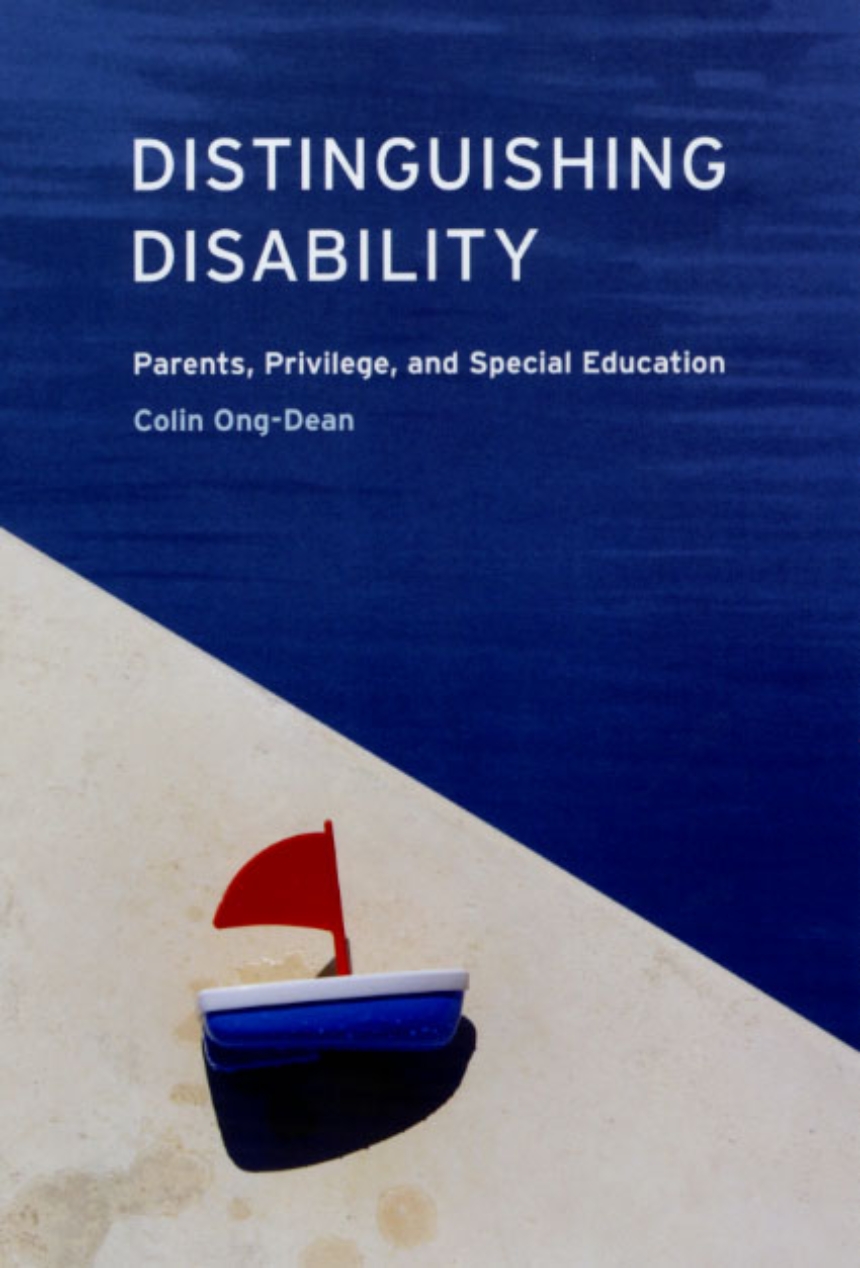Distinguishing Disability
Parents, Privilege, and Special Education
Distinguishing Disability
Parents, Privilege, and Special Education
Students in special education programs can have widely divergent experiences. For some, special education amounts to a dumping ground where schools unload their problem students, while for others, it provides access to services and accommodations that drastically improve chances of succeeding in school and beyond. Distinguishing Disability argues that this inequity in treatment is directly linked to the disparity in resources possessed by the students’ parents.
Since the mid-1970s, federal law has empowered parents of public school children to intervene in virtually every aspect of the decision making involved in special education. However, Colin Ong-Dean reveals that this power is generally available only to those parents with the money, educational background, and confidence needed to make effective claims about their children’s disabilities and related needs. Ong-Dean documents this class divide by examining a wealth of evidence, including historic rates of learning disability diagnosis, court decisions, and advice literature for parents of disabled children. In an era of expanding special education enrollment, Distinguishing Disability is a timely analysis of the way this expansion has created new kinds of inequality.
216 pages | 7 line drawings, 4 tables | 6 x 9 | © 2009
Education: Pre-School, Elementary and Secondary Education, Psychology and Learning
Sociology: Race, Ethnic, and Minority Relations, Social Change, Social Movements, Political Sociology, Social Organization--Stratification, Mobility
Reviews
Table of Contents
Distinguishing Disability
Chapter One
From Social Reform to Technical Management
The Legal Evolution of the Education for All Handicapped Children Act of 1975
Chapter Two
Disabled Children’s Parents
Chapter Three
High Roads and Low Roads to Disability
Chapter Four
Looking for Answers
The Literature on Disability
Chapter Five
Whose Voices Are Heard?
Due Process Hearings and Parents’ Challenge to Special Education Evaluations and Placements
Chapter Six
Reflections on Disability and Social Reproduction
Appendix
Notes
References
Index
